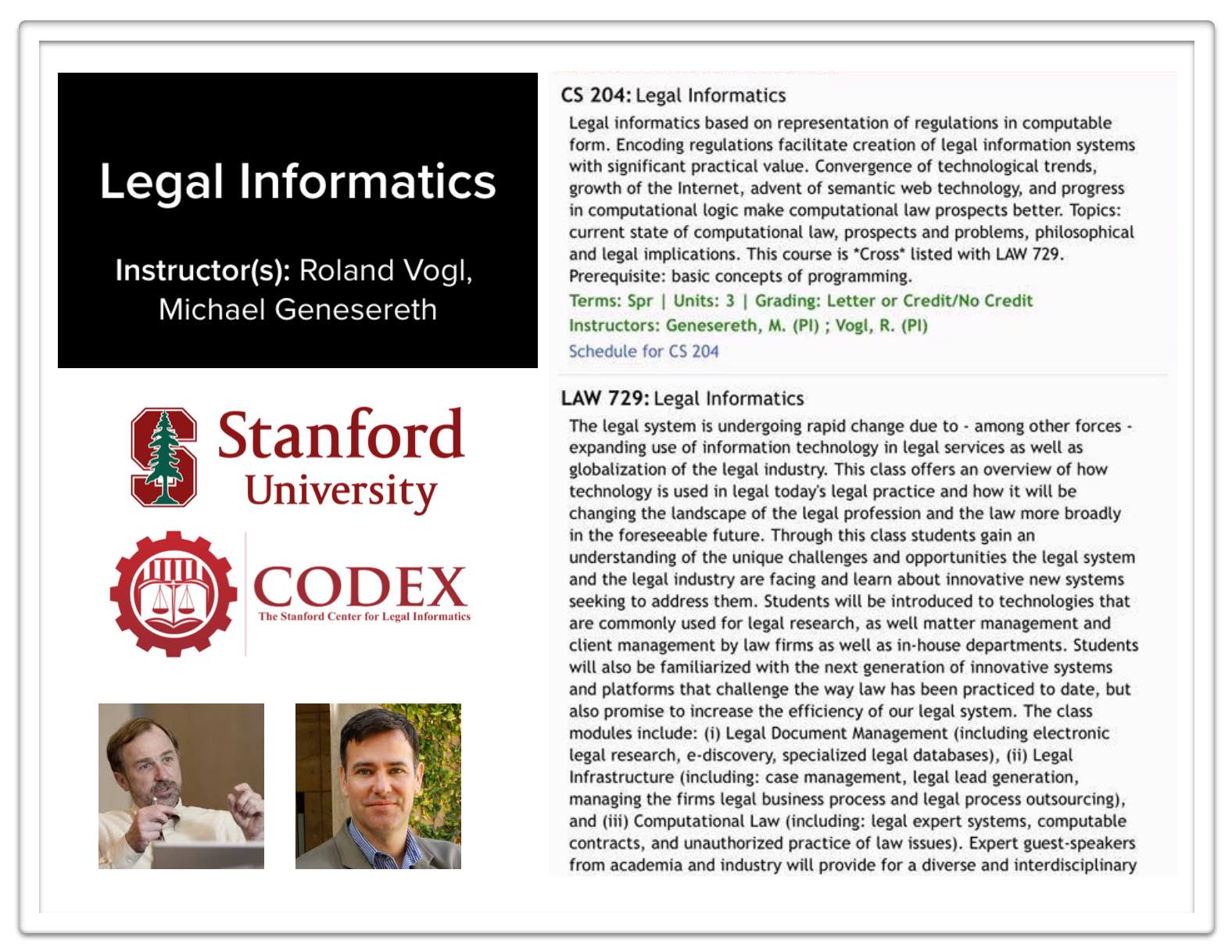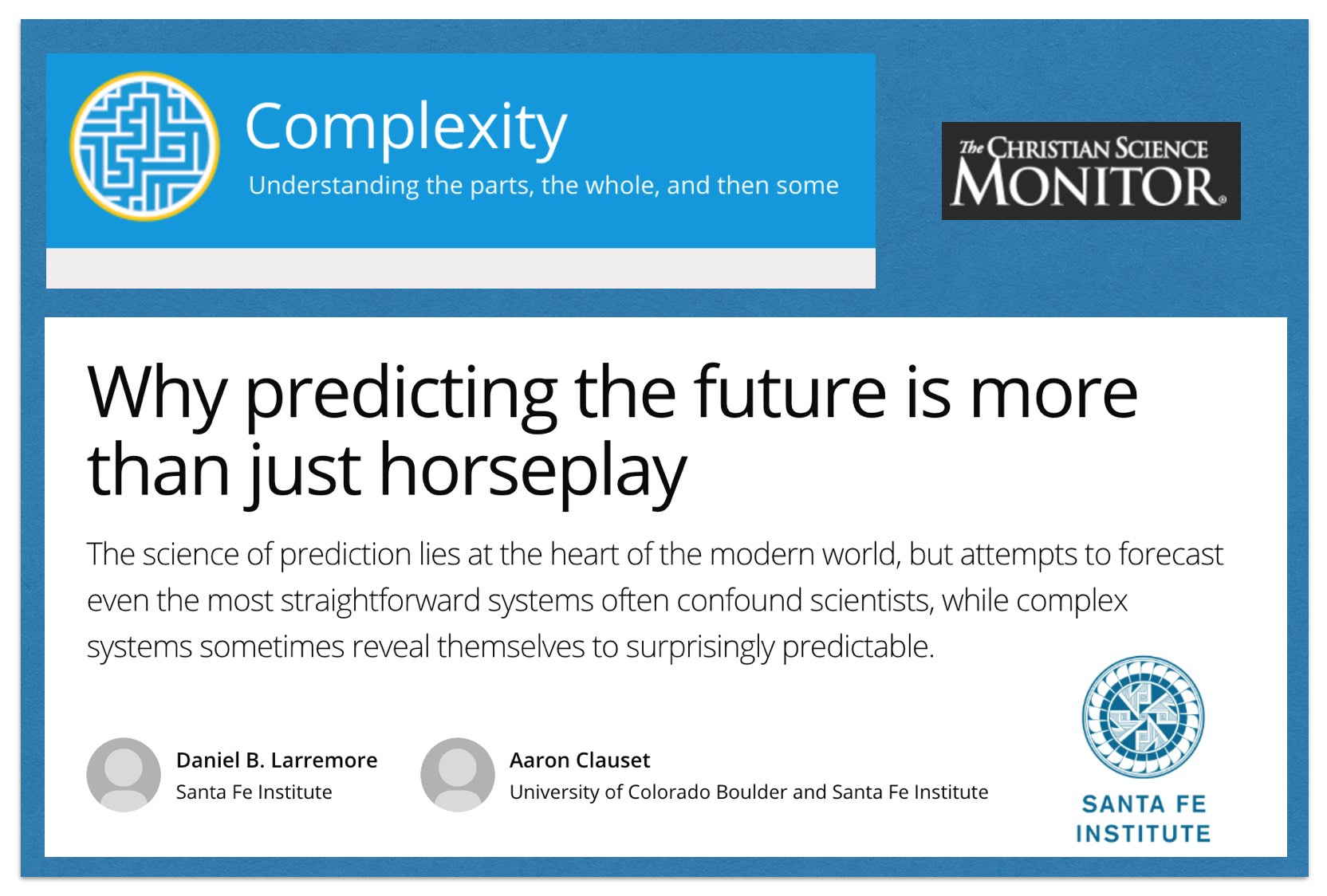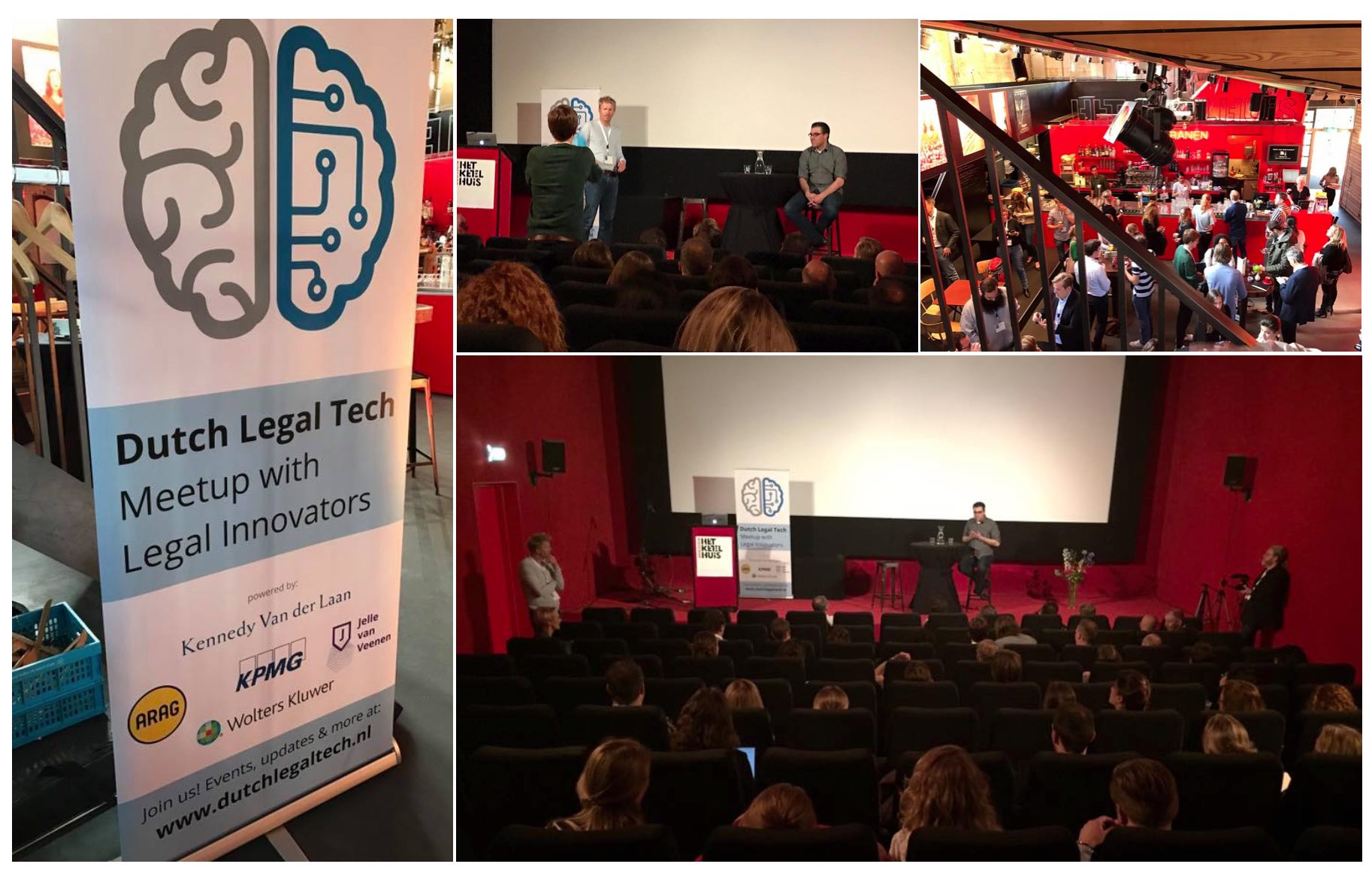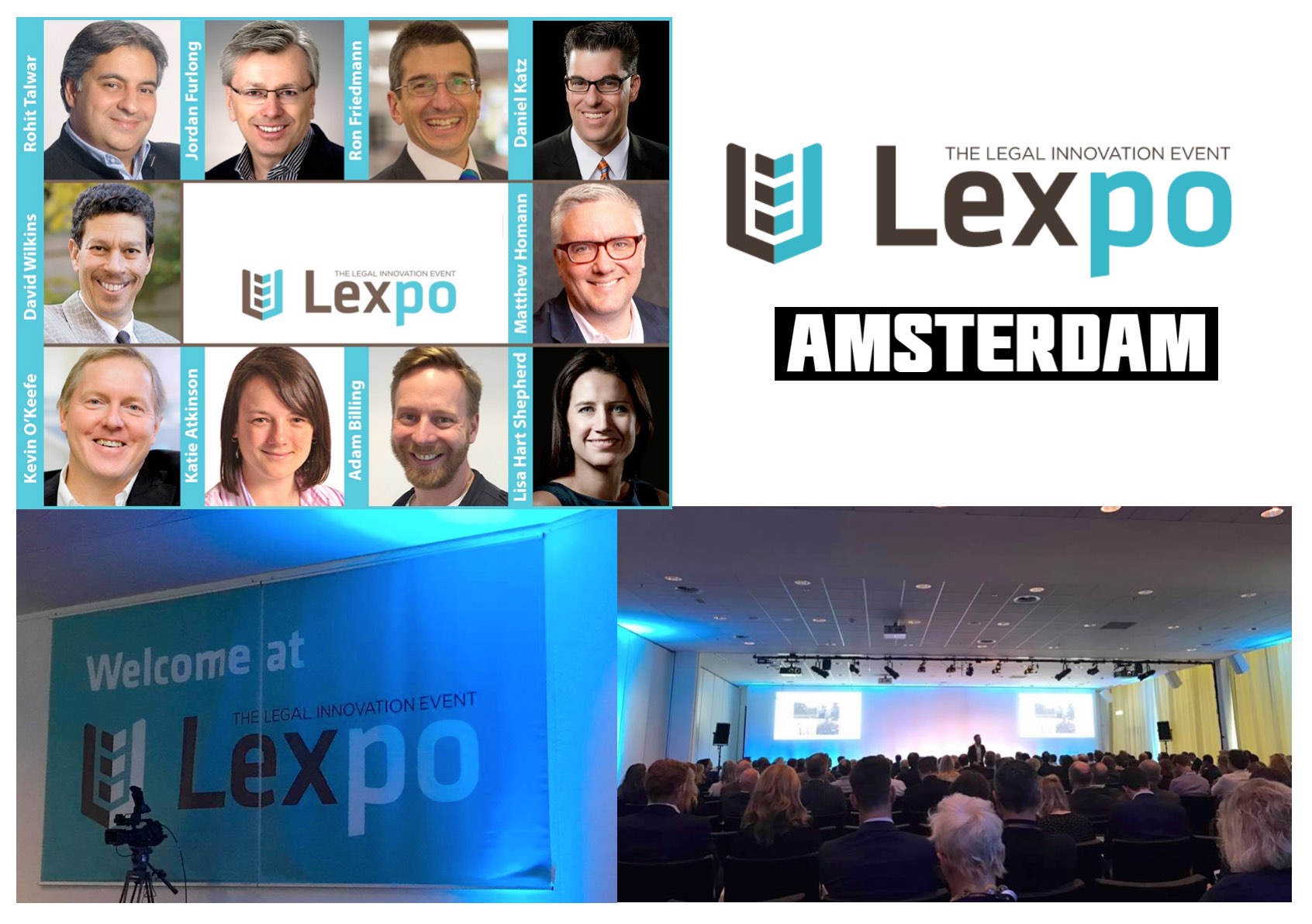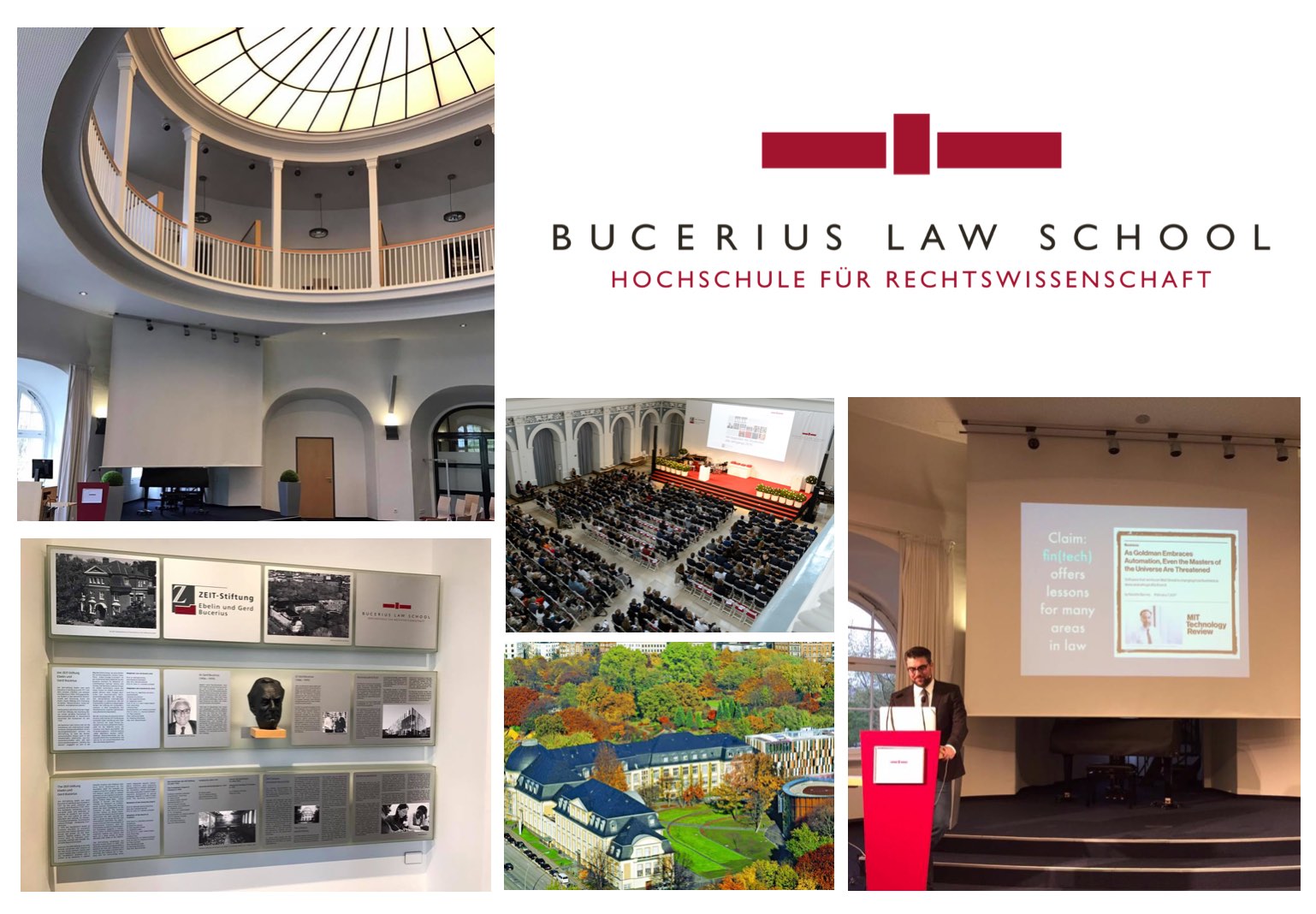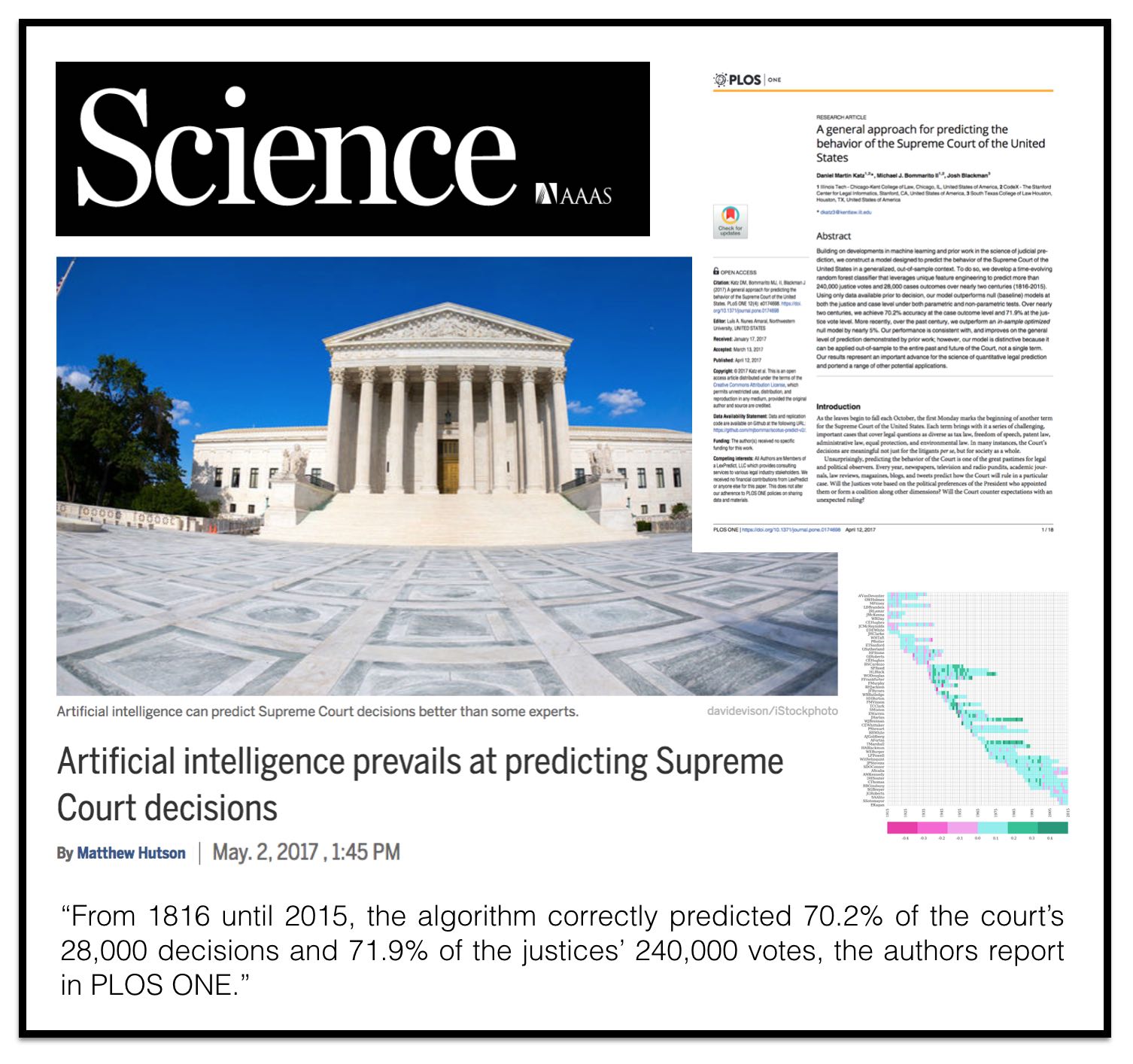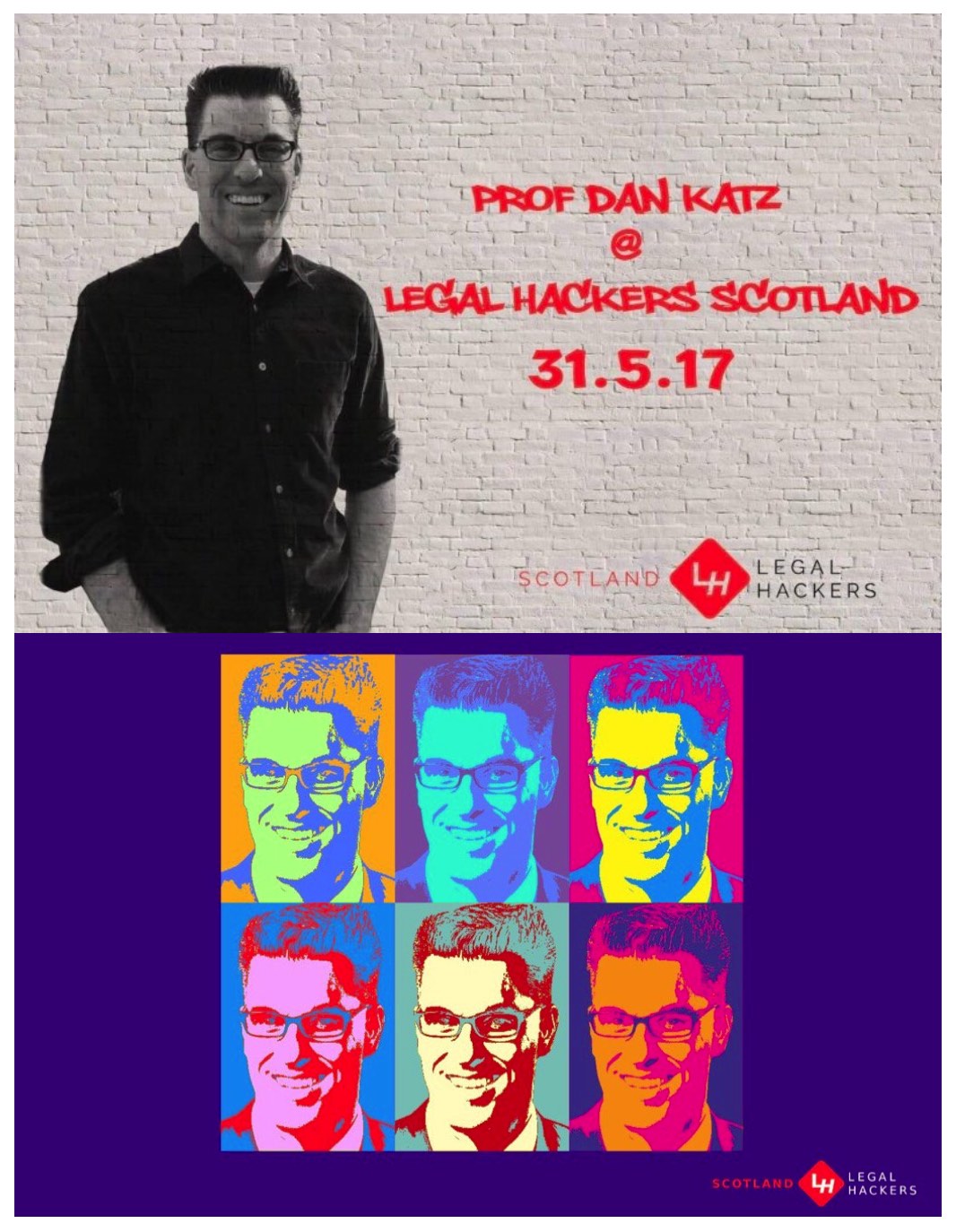 I appreciate my friends at Scotland Legal Hackers going the extra mile to promote my talk (given remotely) in advance of their {Programming + Law} session – note: the person who ought to give this talk is really Michael J Bommarito II
I appreciate my friends at Scotland Legal Hackers going the extra mile to promote my talk (given remotely) in advance of their {Programming + Law} session – note: the person who ought to give this talk is really Michael J Bommarito II
Month: May 2017
Professor Katz as Guest Instructor for Legal Informatics Course @ Stanford Law School
It has my great pleasure to serve as a guest instructor in the Stanford Legal Informatics class! Thanks to Roland Vogl + Michael Genesereth for allowing me to connect with the students in this course.
Opening Remarks at the Scotland Legal Hackers – Programming for Lawyers Event
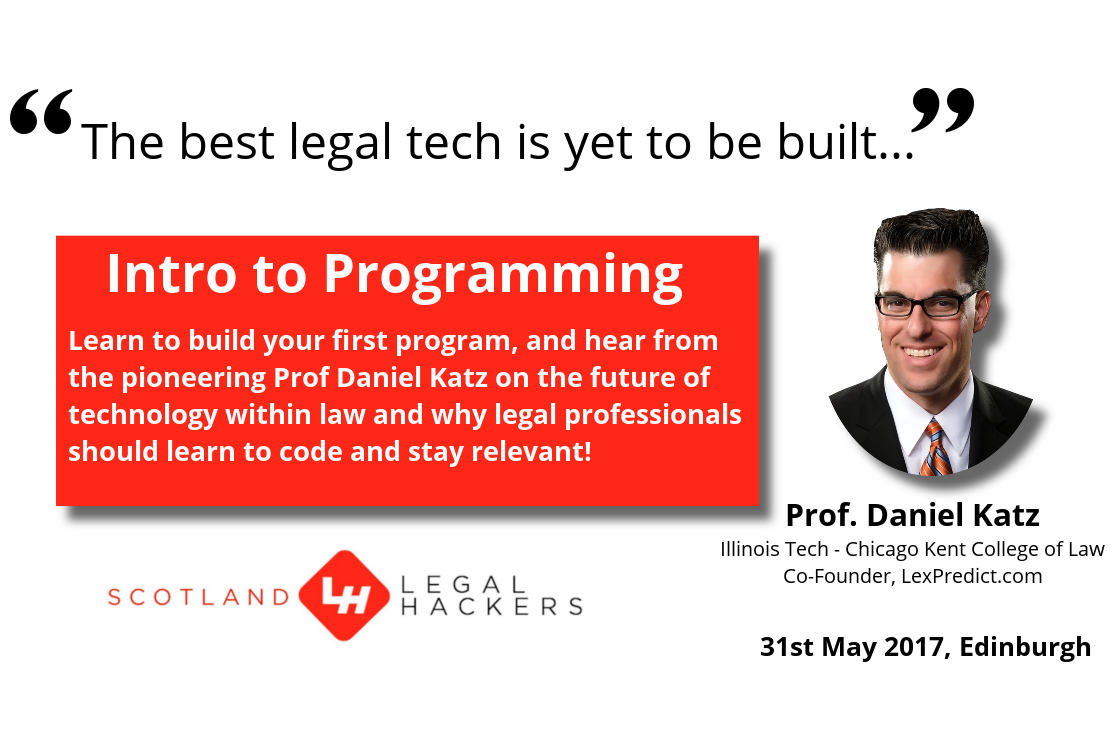 Next week, I will be speaking (remotely) at the Scotland Legal Hackers – Programming for Lawyers Event in Edinburgh. Legal Innovation is a global movement and the Legal Hacker groups around the world represent a very important community of change agents.
Next week, I will be speaking (remotely) at the Scotland Legal Hackers – Programming for Lawyers Event in Edinburgh. Legal Innovation is a global movement and the Legal Hacker groups around the world represent a very important community of change agents.
IE LawX 2017 in Madrid – Presented by IE Law School in Collaboration Stanford CodeX
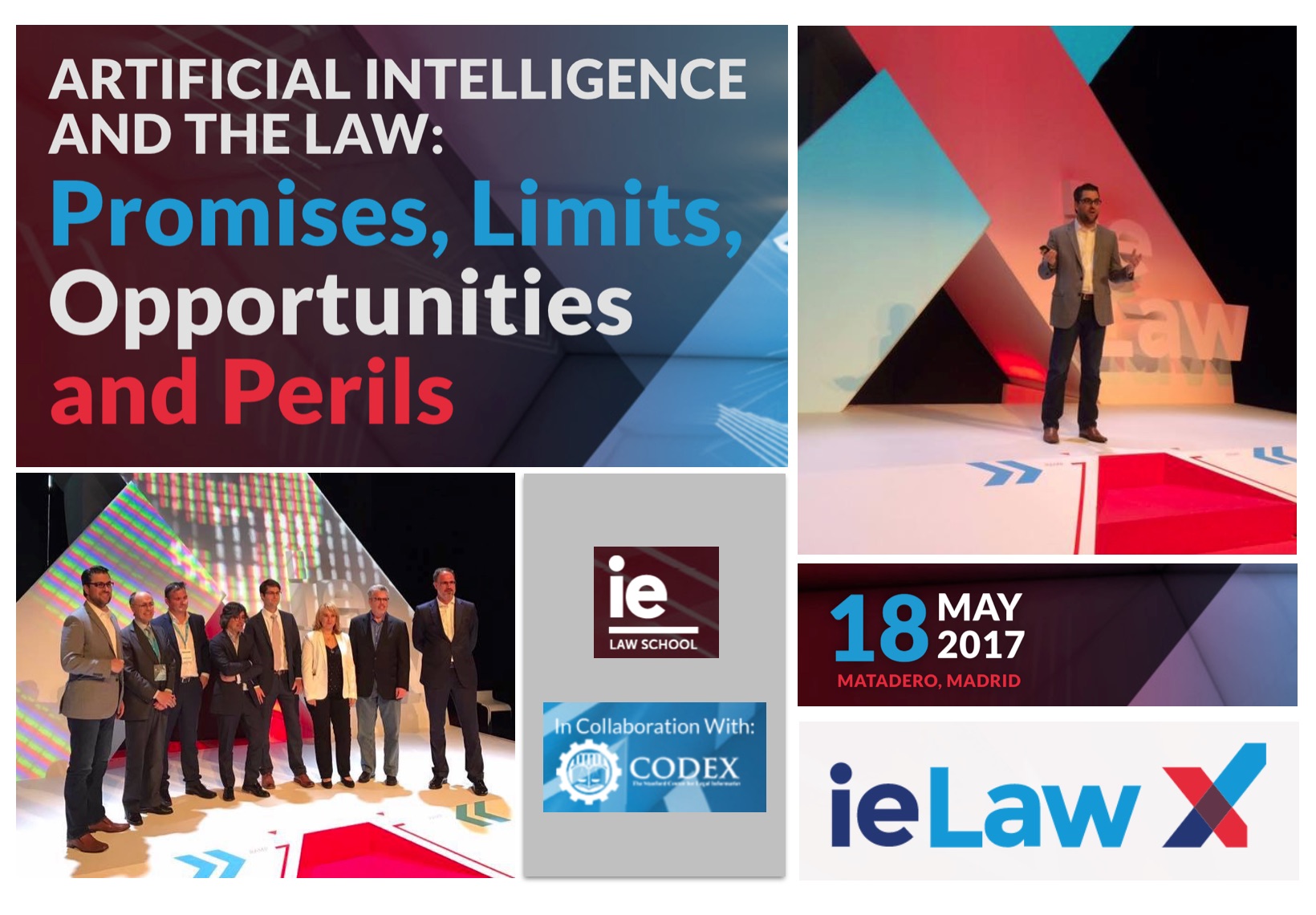 It was my great pleasure to give the opening Keynote Address at IE LawX 2017. I would like to extend my thanks to IE Law School, Dean Javier de Cendra and to all of the team who put on a fantastic event on #LegalTech #LegalInnovation #LegalAI!
It was my great pleasure to give the opening Keynote Address at IE LawX 2017. I would like to extend my thanks to IE Law School, Dean Javier de Cendra and to all of the team who put on a fantastic event on #LegalTech #LegalInnovation #LegalAI!
Law on the Market? Abnormal Stock Returns and Supreme Court Decision-Making (Version 2.01 on arXiv)
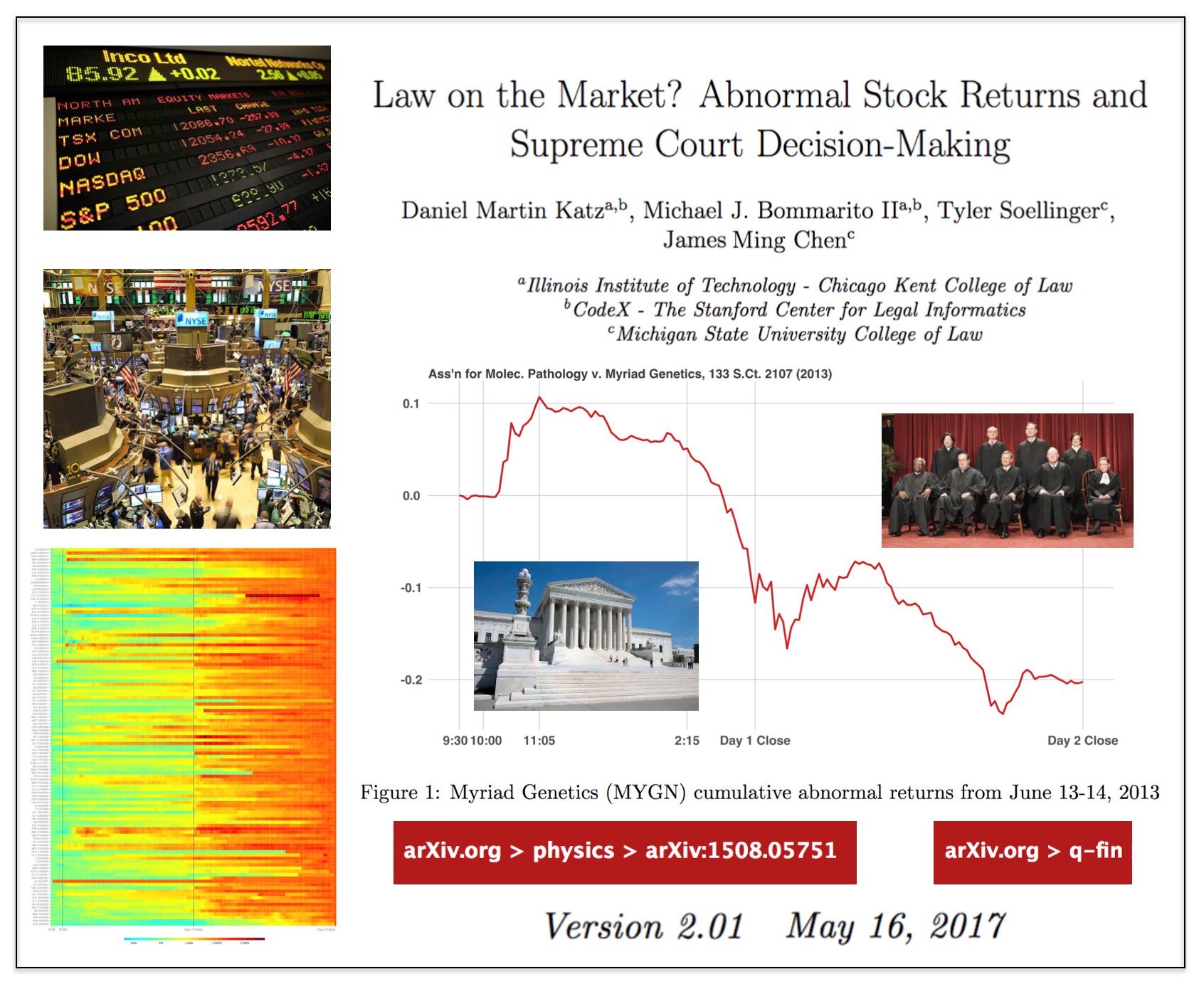
Here is Version 2.01 of the Law on the Market Paper —
From the Abstract: What happens when the Supreme Court of the United States decides a case impacting one or more publicly-traded firms? While many have observed anecdotal evidence linking decisions or oral arguments to abnormal stock returns, few have rigorously or systematically investigated the behavior of equities around Supreme Court actions. In this research, we present the first comprehensive, longitudinal study on the topic, spanning over 15 years and hundreds of cases and firms. Using both intra- and interday data around decisions and oral arguments, we evaluate the frequency and magnitude of statistically-significant abnormal return events after Supreme Court action. On a per-term basis, we find 5.3 cases and 7.8 stocks that exhibit abnormal returns after decision. In total, across the cases we examined, we find 79 out of the 211 cases (37%) exhibit an average abnormal return of 4.4% over a two-session window with an average |t|-statistic of 2.9. Finally, we observe that abnormal returns following Supreme Court decisions materialize over the span of hours and days, not minutes, yielding strong implications for market efficiency in this context. While we cannot causally separate substantive legal impact from mere revision of beliefs, we do find strong evidence that there is indeed a “law on the market” effect as measured by the frequency of abnormal return events, and that these abnormal returns are not immediately incorporated into prices.
Presentation at Legal Innovation Event with Kennedy Van Der Laan and European General Counsels
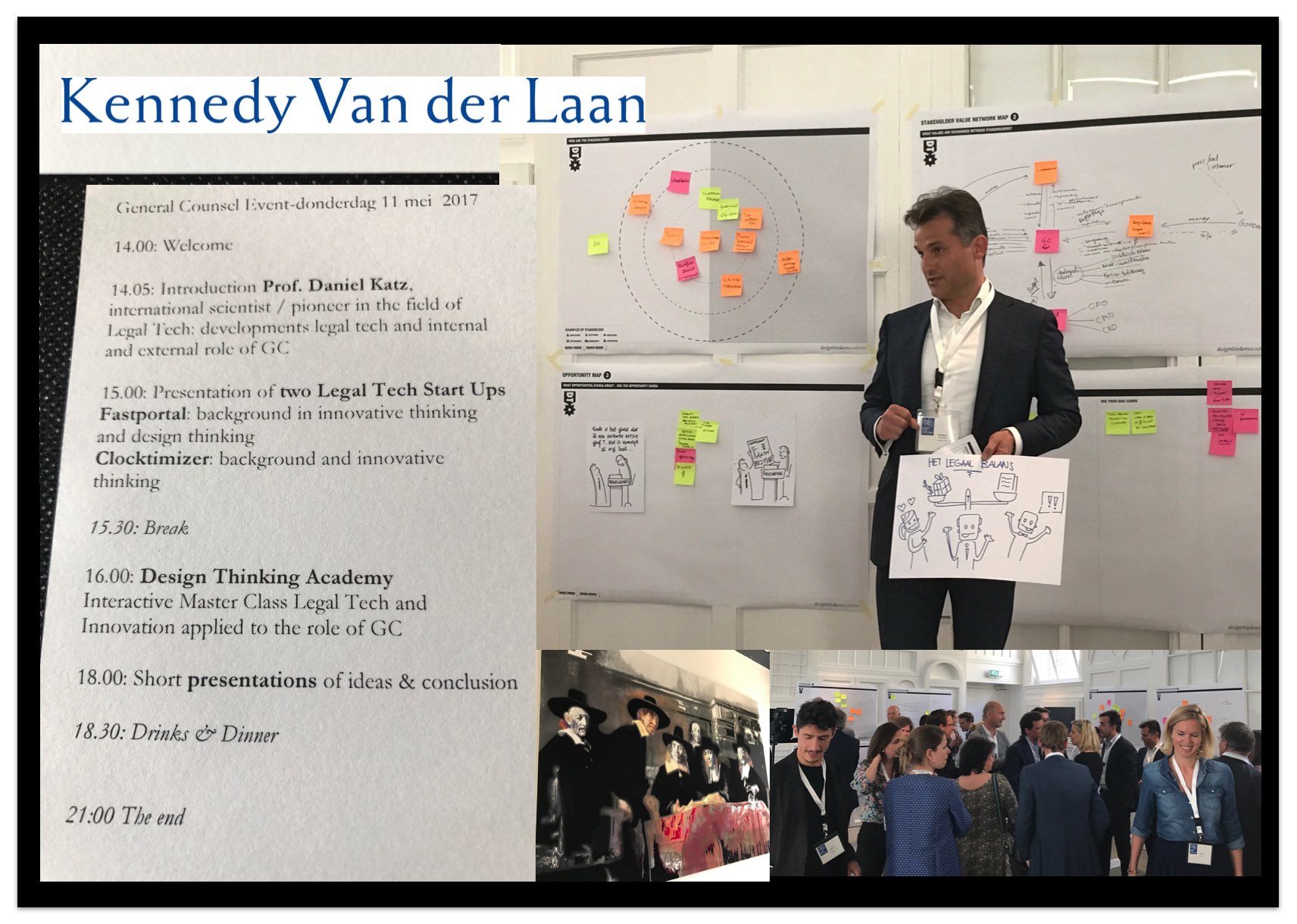
As my part of my final day in Amsterdam – it was my great pleasure to join with my friends from the Dutch Law Firm – Kennedy Van Der Laan (co-founded by the Mayor of Amsterdam Eberhard van der Laan) for a Legal Innovation Event. The event combined sessions in data, technology and design thinking for a variety of European General Counsels.
Speech at the Dutch Legal Tech Meetup – Amsterdam
A great group here at the Dutch Legal Tech Meetup (the overall community has more than 800 members) – yesterday I spoke at a special student focused session! Thanks to Jelle Van Veenen Jeroen Zweers for serving as my hosts.
Lexpo 2017 Amsterdam – The Legal Innovation Event
Legal Innovation is a global phenomena. US, UK, Canada, Australia, Continental Europe, South America, Asia, Central America, Africa, etc. (and new events in new places popping up everyday).
My view is that despite jurisdiction differences – lawyers are lawyers. No matter where I travel they are a recognizable species with similar business, technology and process improvement challenges.
Lexpo 2017 brings this conversation to the Netherlands for the second straight year. I will be presenting on Artificial Intelligence and Law.
The Machine Learning as a Service (#MLaaS) Ecosystem Grows … Bonsai as a #MLaaS Implentation Company
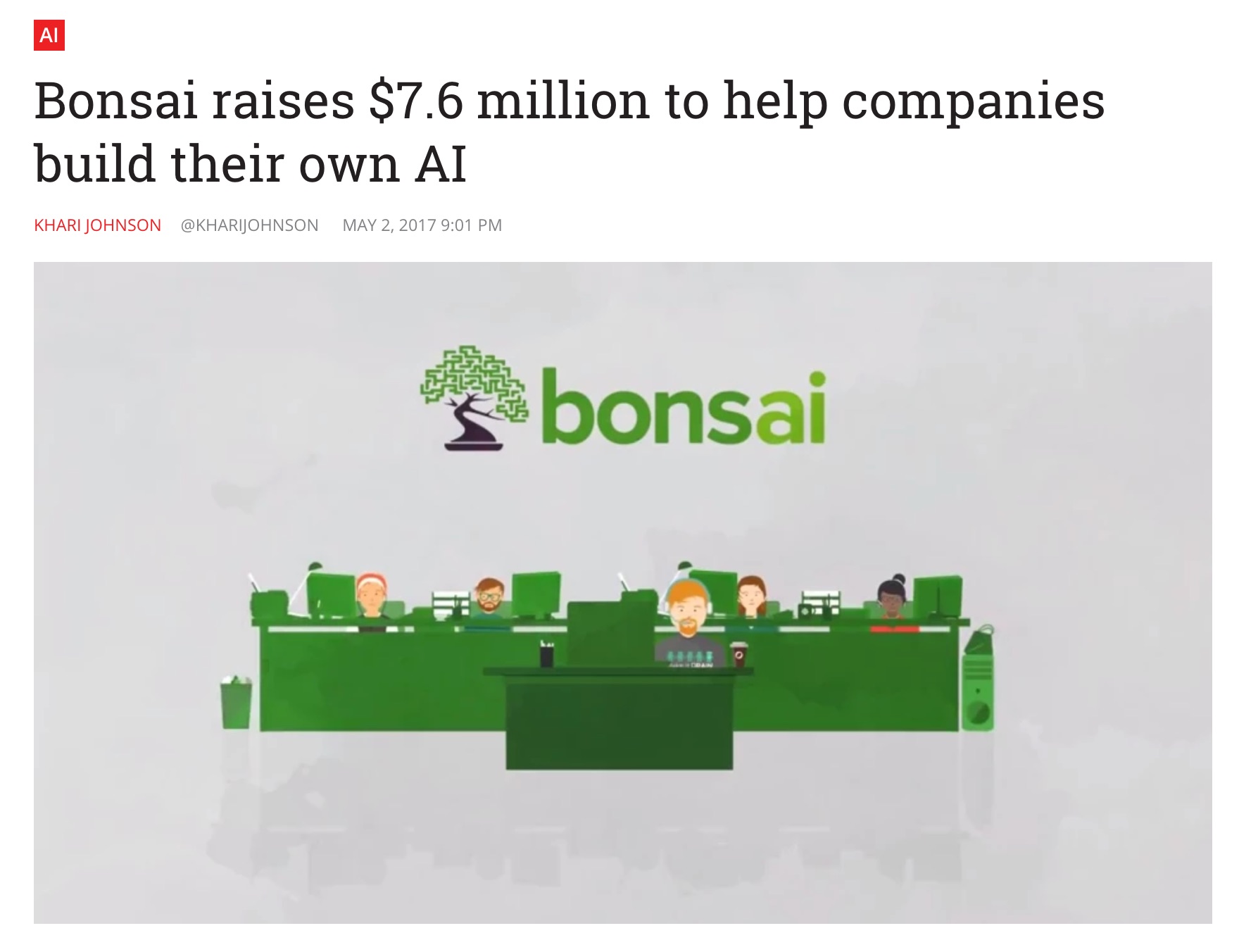 From Venture Beat – “AI startup Bonsai has raised $7.6 million to grow its platform that simplifies open-source machine learning library TensorFlow to help businesses construct their own artificial intelligence models and incorporate AI into their business.”
From Venture Beat – “AI startup Bonsai has raised $7.6 million to grow its platform that simplifies open-source machine learning library TensorFlow to help businesses construct their own artificial intelligence models and incorporate AI into their business.”
Harvard Law Seeks to Attract STEM Students
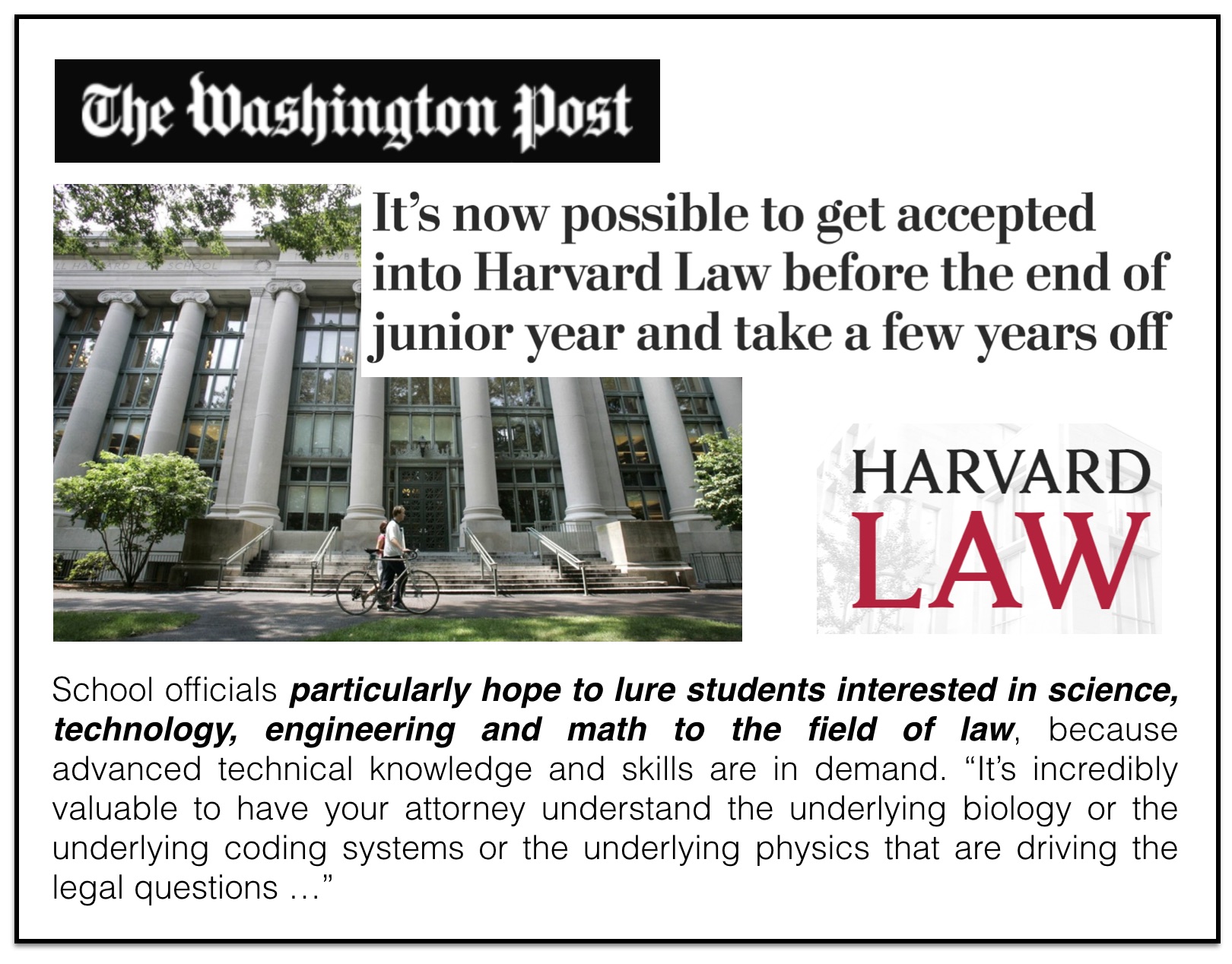
There is an old adage which states that “Innovation is doing the obvious before it is obvious to others.” Suffice to say – this is a totally obvious but it also very correct. Getting at least some STEM folks to help lead law forward is really important for the future of this field. So kudos to Harvard for doing this – particularly because as they say in the NFL — this is a ‘copycat league.’
“School officials particularly hope to lure students interested in science, technology, engineering and math to the field of law, because advanced technical knowledge and skills are in demand. “It’s incredibly valuable to have your attorney understand the underlying biology or the underlying coding systems or the underlying physics that are driving the legal questions,” said Jessica Soban, associate dean for admissions and strategic initiatives.
It is worth noting that this quote frames the effort as working to develop lawyers for technology – which is the right way to sell this idea to a conservative (intelligent but not technically inclined) faculty.
The obvious flip side of this is that some subset of these same folks will also help champion technology (and innovation) for law itself. I would expect HLS to try to make some sort of play in this direction (but would need more folks with relevant technical skills on the core faculty) … perhaps they could consider a Joint Venture with that other academic institution in Cambridge ?
Presentation at Legal Tech Lecture Series — Bucerius Law School – Hamburg
It was a great honor to deliver an address as part of the Legal Tech Lecture series at Bucerius Law School here in Hamburg, Germany. Bucerius Law School was rated the number one law school in Germany by CHE-University ranking.

